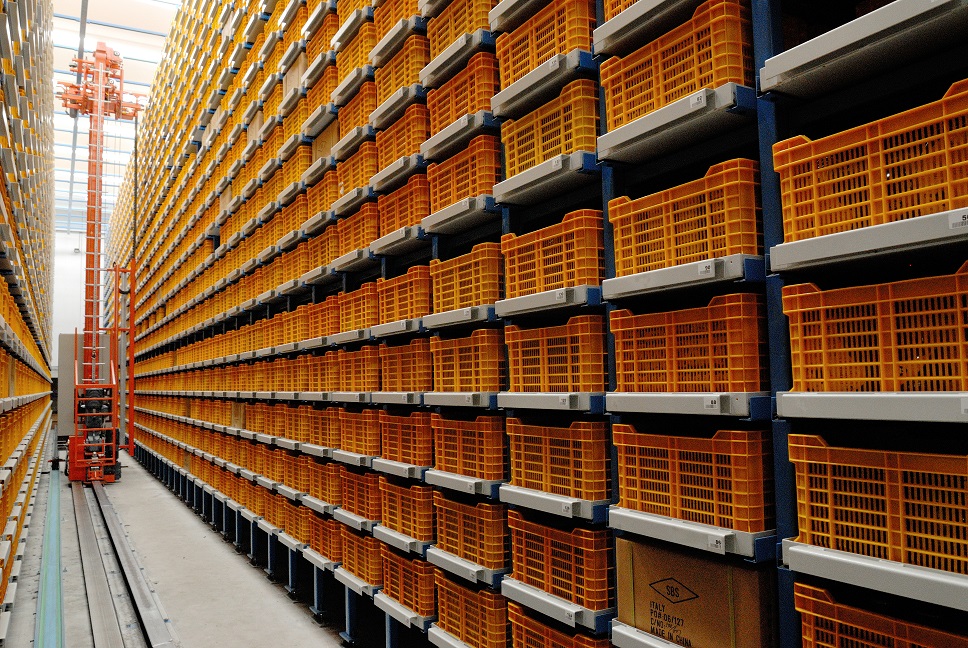Royal decree takes Spain a step further towards a circular economy
Published on 25th April 2023
The new provisions include measures aimed at promoting the sale of food in bulk and the use of reusable packaging

Since the Industrial Revolution, economic growth has relied on the exploitation of natural resources, which, after being transformed in the production chain and consumed, become waste that ends up mainly in landfills.
However, this linear growth model, which has been the predominant pattern of economic development, has proven to be unsustainable. For some time now, the European Union has been adopting various directives to promote the implementation of a development and growth model that optimises the use of available resources, materials and products, maintaining their value in the economy for as long as possible and minimising waste generation.
New packaging legislation
As part of this drive towards a circular and sustainable economy, the Spanish government has adopted the Royal Decree 1055/2022 on packaging and packaging waste which represents a comprehensive revision of Spanish legislation in this area, which has been in force for more than 20 years and aligned with the objectives of the European Union.
The regulation develops Act 7/2022, of 8 April, on waste and contaminated soils for a circular economy , and incorporates into Spanish law Directive (EU) 2018/852 on packaging and packaging waste, as well as the measures on extended producer responsibility contained in Directive (EU) 2019/904/EU on the reduction of the impact of certain plastic products on the environment.
The text establishes the legal regime applicable to packaging and packaging waste in order to prevent and reduce their impact on the environment. This regulation is part of the regulatory package of the Recovery, Transformation and Resilience Plan that will allow Spain to advance in the implementation of the circular economy and meet the new packaging recycling objectives imposed by Europe for the years 2025 and 2030. The provisions contained in this royal decree came into force on 29 December 2022, except those related to packaging marking obligations, which postpone their application to 1 January 2025.
Scope of application
The regulation applies to all packaging and packaging waste placed on the market in Spanish territory, regardless of its use or origin in industry, commerce, offices, commercial establishments, services, households or other places, and without prejudice to the applicable special provisions, such as those related to the safety, health protection and hygiene of packaged products, medicines, transport requirements and hazardous waste, among others.
Waste prevention and reuse
One of the main updates included in the final text of the royal decree is the establishment of a wide range of measures and objectives aimed at waste prevention. Among the objectives set out in the regulation, it is worth highlighting the reduction in weight of waste generated and in the number of single-use plastic bottles that are marketed, as well as the attempt to put an end to the sale of single-use plastic packaging. Along these lines, it is also introduced as an objective to ensure that all packaging placed on the market by 2030 is recyclable and, where possible, reusable.
In addition, a number of measures are envisaged to promote bulk sales and the use of reusable packaging by retailers.
Packaging waste recycling
The royal decree not only promotes recycling, but also encourages the incorporation of materials obtained from packaging waste into new packaging and other products. In this sense, it establishes a series of recommended percentages of recycled plastic content in packaging that producers must try to achieve by 2025 and 2030. However, it is important to note that in the case of single-use plastic bottles, these percentages will be mandatory.
Extended producer responsibility
The cornerstone of the regulation is found in the chapter dedicated to the extended producer responsibility (EPR) scheme. One of the most significant updates included is the extension of this scheme to commercial and industrial packaging producers, who were previously exempt from complying with these obligations.
This means that commercial and industrial packaging is subject to the same obligations as household packaging with regard to EPR and that, as a result, companies in various sectors that were previously not subject to this scheme, including e-commerce platforms, must now comply with the organisational, financing and waste management obligations set out in the regulation.
The text regulates in detail numerous responsibilities of these packaging producers, including the obligation for many of them − depending on the volume of packaging they market − to develop prevention and eco-design plans. This obligation can be fulfilled individually, through individual systems subject to prior notification, or through collective systems that require authorisation.
For collective systems, the royal decree establishes a financial contribution, which must be adjusted according to the type of packaging, taking into account circular economy criteria, such as the nature and quantity of material used in its manufacture, its durability, or whether it can be repaired, reused, or recycled, among others. A bonus may be applied to these financial contributions when the product meets efficiency criteria, or a penalty may be applied in the event of non-compliance with said criteria.
Packaging marking
The regulation also lays down a number of conditions for packaging marking that will be enforceable from January 1, 2025. Packaging must indicate, where appropriate, its condition as reusable or the containers in which it should be deposited when discarded. However, even if the packaging is reusable, the use of words such as "environmentally friendly" or any other equivalent is prohibited, as it could encourage its abandonment in the environment.
Furthermore, it is envisaged that packaging may be marked with an indication of the percentage of material available for quality recycling, in order to help consumers make informed decisions. However, to ensure the reliability of this information, it is required to be obtained from an audited and certified assessment that is to be reviewed at least every five years.
On the other hand, the text outlines specific information requirements that apply to both autonomous communities and natural and legal persons authorised to collect and treat packaging waste professionally. The information required is divided into two categories: for public authorities and for consumers, users, the general public and non-governmental organisations. Consumers must be informed about how to prevent the generation of packaging waste and how to dispose of it properly according to their locality's waste management model. By providing this information, consumers can play an active role in reducing the environmental impact of packaging waste.
Traders and distributors will have one year from the entry into force of the regulation – that is, from December 28, 2023 – to comply with the obligations set out in the chapter dedicated to EPR.
Osborne Clarke comment
Given the large number of companies that market packaging and the broadness of the concept of packaging, it is clear that the provisions of this regulation will not go unnoticed and will have a great impact on all the agents affected by the royal decree, even though it will probably have to be revised as a result of the adoption of a European regulation on this matter.
In any case, we can conclude that this legislative update is an important step forward for Spain towards a more sustainable and responsible model in the use of resources and waste management, bringing us closer to a circular model which, in short, is the future of the economy.





